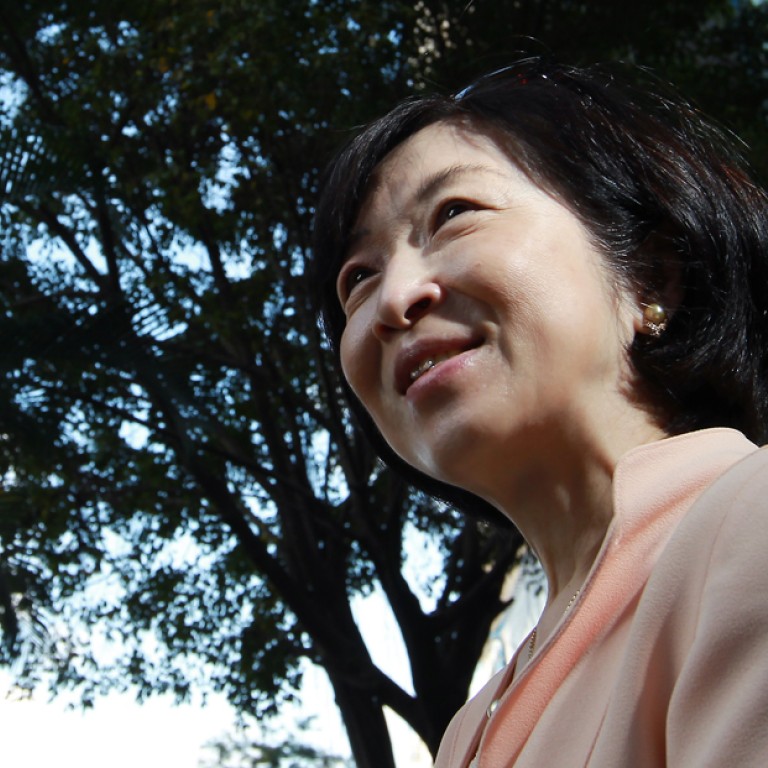
Fanny Law opposes arbitrary screening for chief executive race in 2017
Executive councillor Fanny Law would like to see three candidates running for chief executive in 2017 under ‘one man, one vote’ system
Chief executive candidates who hold different views to Beijing should not be arbitrarily screened out of the election, an adviser to Chief Executive Leung Chun-ying says.
Fanny Law Fan Chiu-fun, an executive councillor who was director of Leung's transitional office after he was elected last year, said she favoured a three-horse race when the "one man, one vote" system is introduced for the 2017 election.
She told the South China Morning Post: "It would be practically impossible to screen out some candidates arbitrarily."
In March, the chairman of the National People's Congress Law Committee, Qiao Xiaoyang , said the chief executive must not be confrontational towards the central government. Pan-democrats saw Qiao's comment as the clearest hint yet that a screening mechanism would be set up to bar candidates deemed unacceptable to Beijing from running in 2017.
Law said many pan-democratic politicians were not confrontational towards Beijing. She said the nominating committee should assess the calibre of candidates based on criteria such as competence, public acceptance and ties with Beijing, before short-listing candidates for a one man, one vote ballot.
Candidates should pledge allegiance to Beijing when they sought nominations for the race, she said.
Last week, fellow executive councillor Regina Ip Lau Suk-yee told the Post that dividends brought by universal suffrage, such as a stronger mandate for the chief executive, would be lost if the electoral or nominating method was rigged to rule out certain candidates.
Article 45 of the Basic Law calls for a "broadly representative" nominating committee to propose chief executive candidates for election "in accordance with democratic procedures".
Law said she preferred having three candidates put forward by the nominating committee.
"If there are more than three, it would be difficult for voters to understand their platforms," she said.
Law agreed that Civic Party legislator Ronny Tong Ka-wah's proposal to let voters rank their choices for a leader, instead of picking the winner via a simple majority, was a feasible option.
Under such a system, voters rank the candidates in order of preference. The person who secures more than half the votes wins; otherwise, the one with the fewest ballots is eliminated. The votes from the eliminated candidate are then added to the voters' second choices. This allocation process continues until one person receives more than half the votes.
"It can guarantee the election of the most acceptable candidate," Law said.
She agreed with a proposal to set up a platform comprising representatives from various sectors, similar to the Basic Law Consultative Committee in the 1980s, to forge consensus on political reform before the start of a public consultation.

